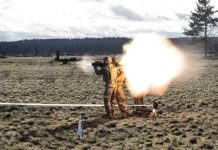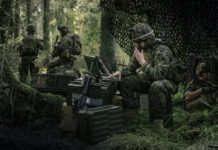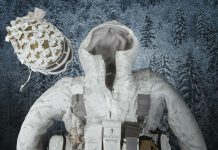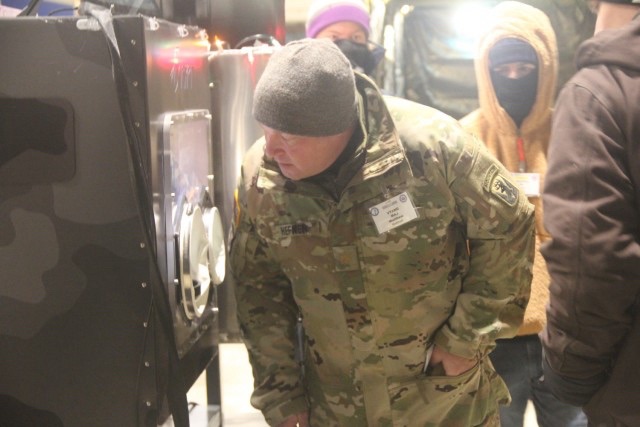
HANOVER, N.H. — If a critical part breaks in the Arctic, or other similarly remote and austere environments, forward-deployed warfighters can’t just order a replacement on the internet and have it shipped overnight. But what if they could manufacturer it onsite themselves?
That was the premise behind the Office of the Secretary of Defense Manufacturing Technology, or ManTech, Program’s first-of-its-kind Point of Need Manufacturing Challenge, held December 4-8, at the U.S. Army Engineer Research and Development Center’s Cold Regions Research and Engineering Laboratory, or CRREL, in Hanover, New Hampshire.
The event showcased technologies generated by member companies of the Department of Defense Manufacturing Innovation Institute. Six projects, selected for funding in March by ManTech and DoD expert judges, used the event to demonstrate that their systems could be deployed in a cold weather environment to help close supply chain gaps and enable warfighters to manufacture and utilize critical equipment right where they need it.
“Material performance in the cold is different,” said Dr. Steven Wax, acting Assistant Secretary of Defense for Science and Technology in the Office of the Under Secretary of Defense for Research and Engineering. “We must understand this to adapt to support current operations.”
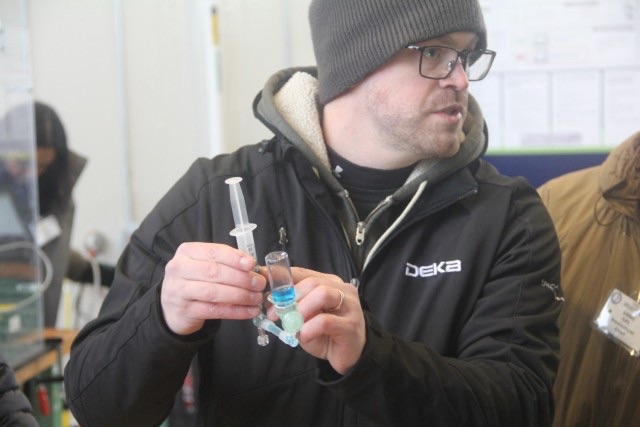
According to Stephen Luckowski, an advanced manufacturing associate at the Combat Capabilities Development Command Armaments Center, CRREL was selected by the Office of the Undersecretary of Defense to host the event because of the unique capabilities that exist at the laboratory.
“The cold temperature capabilities at minus-60 degrees emulate the environments that we believe we will see in operations around the world,” Luckowski said. “This is a unique capability in the United States, and the only place where we could actually execute this type of work.”
One of the industry participants, Anusha Iyer, CEO and founder of Vienna, Virginia-based Corsha, said the opportunity to work in such extreme cold temperatures was invaluable.
“It’s been an incredible experience being able to come here and do this exercise at CRREL and really simulate that our platform can work at these kinds of extreme, austere temperatures and environments, and make sure that we’re putting in place technologies and solutions for the warfighter that will help them at point of need,” said Iyer, whose team demonstrated a platform that manages cybersecurity challenges presented by point-of-need manufacturing. “It’s only when you come into these types of settings that you see the unique constraints — everything that you take for granted sitting in an office or sitting in a secure data center that’s warmed up and continually connected — it’s a totally different playing field when you come into an environment like this. Everything from connectivity to cabling, to environmental constraints, are what we are solving for, and it’s great to do it in a live environment like this.”
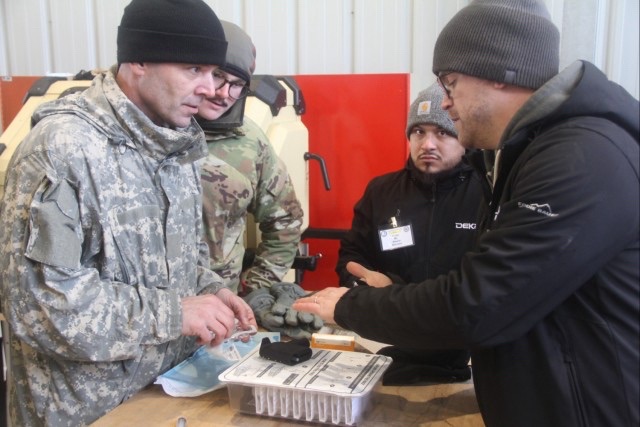
Defense officials from allied partner nations joined senior leaders and general officers from the Office of the Secretary of Defense, the military services, defense agencies and the National Guard to witness manufacturing demonstrations in extreme cold temperatures.
Wax was joined by the U.S. Army Combat Capabilities Development Command Deputy Commanding General Brig. Gen. David Trybula and DoD ManTech Director Tracy Frost in attending the event and interacting with and congratulating the developers on their accomplishments advancing the defense technologies to meet the warfighters’ needs.
The event allowed CRREL’s scientists and engineers to demonstrate the laboratory’s capabilities and forge important relationships with defense industry and DoD personnel.
“Hosting the Point of Need Challenge provided an opportunity for the CRREL community of scientists and engineers to not only support a significant DoD technology demonstration, but also to connect with, and develop, new partnerships with the larger DoD community of stakeholders,” said Dr. Joseph Corriveau, director of CRREL. “Through these partnerships our ultimate goal is to work together on tomorrow’s challenges, today.”
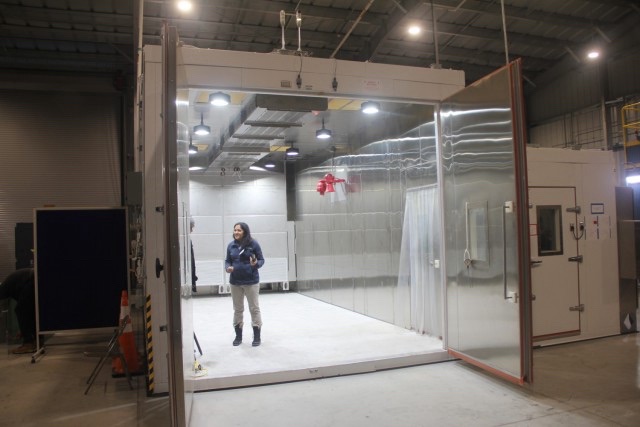
Those new partnerships have already begun to pay dividends, according to Dr. Orian Welling, chief of CRREL’s Force Projection and Sustainment Branch.
“Since the event, I’ve talked to several researchers who’ve been invited to engage on numerous topics, including participating in events this winter with SOCOM, holding trainings for our staff in Picatinny, and collaborating with researchers at the U.S. Army Research Laboratory and Natick Soldier Center,” said Welling.
The projects covered three challenges — the Warfighter Medical, Health and Nutrition Challenge; the Staying in the Fight Challenge; and the Cyber Challenge — and were assessed in real time by Soldiers, Marines, National Guardsmen and engineers. ManTech will invest nearly $2.5 million, while industry partners will contribute nearly $700,000 in cost share.
By Justin Campfield
You can skip to the end and leave a response. Pinging is currently not allowed.


